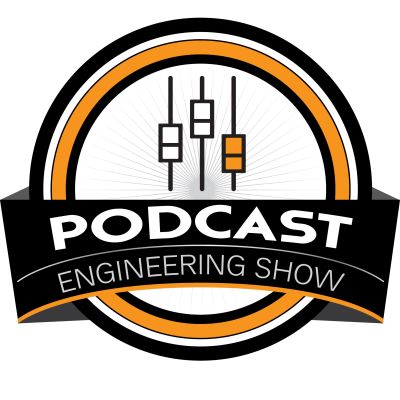This show focuses on the technical production of audio podcasts. Chris Curran chats with podcasters about their audio equipment, software and workflow to help you learn how to produce better sounding podcasts. You’ll also learn solutions to common audio issues as well as plenty of tips and tricks. By listening to this show you will gain a TON of knowledge and skills that will make a HUGE difference in your sound quality _and_ save you time! Subscribe/Follow today and start listening! Your host Chris Curran has a background in podcast production (Forbes, Dun & Bradstreet, J&J, etc) as well as music production (Sarah McLachlan, Jeff Buckley, Foreigner, etc). When he entered podcasting in 2012, he noticed that most podcasters (and producers) do not have a good understanding of fundamental audio engineering concepts, which sabotages the quality of their sound from the very beginning. This show, as well as Podcast Engineering School, helps podcasters and producers reach professional levels of podcast audio production.
https://podcastengineeringschool.com/category/show/
episode 103: René Coronado: Sound Designer and Audio Engineer
My guest is René Coronado - audio engineer, sound designer at Dallas Audio Post Group, and cohost of the Tonebenders Podcast.
Enjoy this awesome episode; we discussed:
- Speed Round #1 for his Tonebenders Podcast: Shure SM7B, Sound Devices MixPre-3, Skype, record onto SD Card, ProTools, Soundcloud.
- Speed Round #2 for his work at Dallas Audio Post (Control Room A):Avid C24 Controller, Genelec monitors, ProTools, computers are in a separate machine room, AT 4050 (workhorse), TLM 103, U87, MKH 50 and 416.
- Wave Rider (from Quiet Art) on the voices, aims at -25 dB RMS using averaging mode
- EQ, Compression, Master compressor
- The room where works is calibrated for -23 LUFS so he knows what that sounds like.
- Bounce the mix into RX6 Loudness to -18 LUFS stereo, then back into ProTools for encoding the MP3.
- Field recording: Line Audio CM3
- Studio recording (Voiceovers, etc)
- Sound design techniques
- Track layouts
- Separate chains - dialogue, voiceover
- Soundminer - sound fx software program, tagged with metadata so the sounds are easily searchable.
- Mixing plugins: ProTools channel strip, Sound Particles, Twisted Sound “whoosh,” using distortion to bring up mids (20% distortion), Native Instruments delay called Replika.
I also asked René: "What advice do you have for podcast engineers and producers?" Listen for his answer ;)
Thank you for being a great guest, Rene!
DID YOU KNOW........We exist for the purpose of helping you, so please comment below with any questions or remarks. Thanks for listening!
Want to Start a Business or Have a Career as a Podcast Producer/Engineer?
Listen and Subscribe in Apple Podcasts, Google Podcasts, iHeart Radio, Stitcher, TuneIn Radio, Android, RSS
